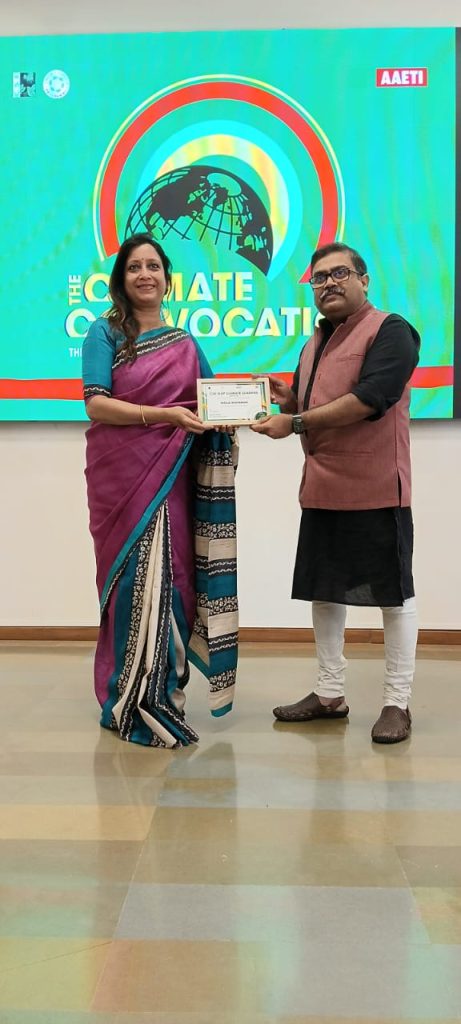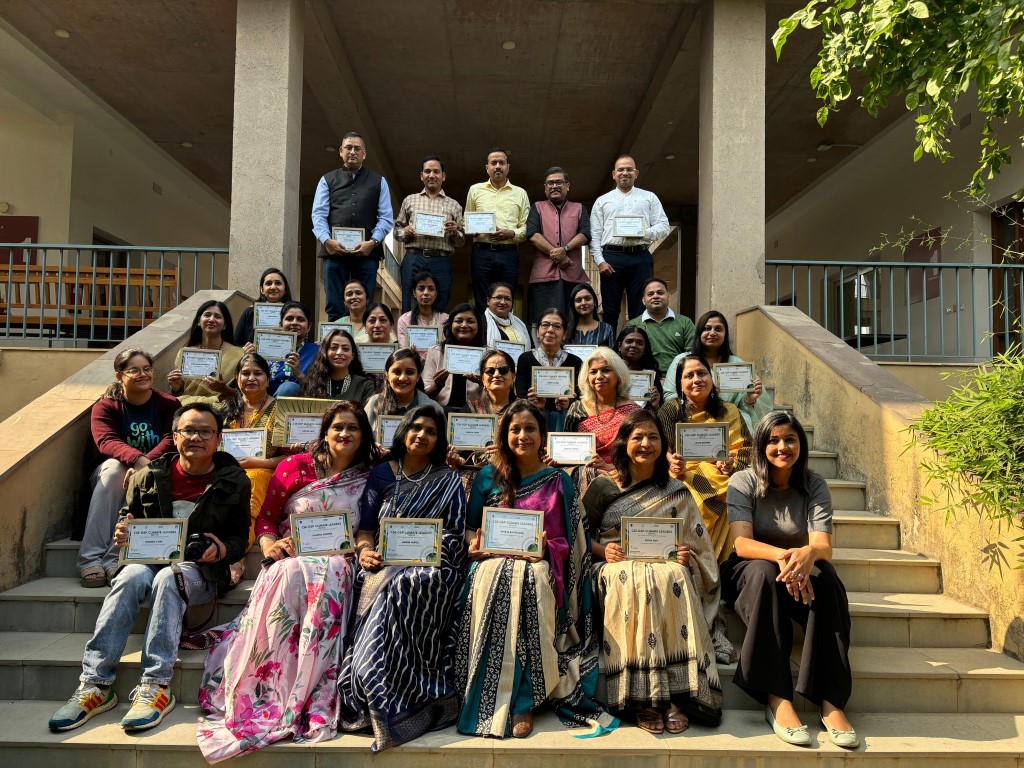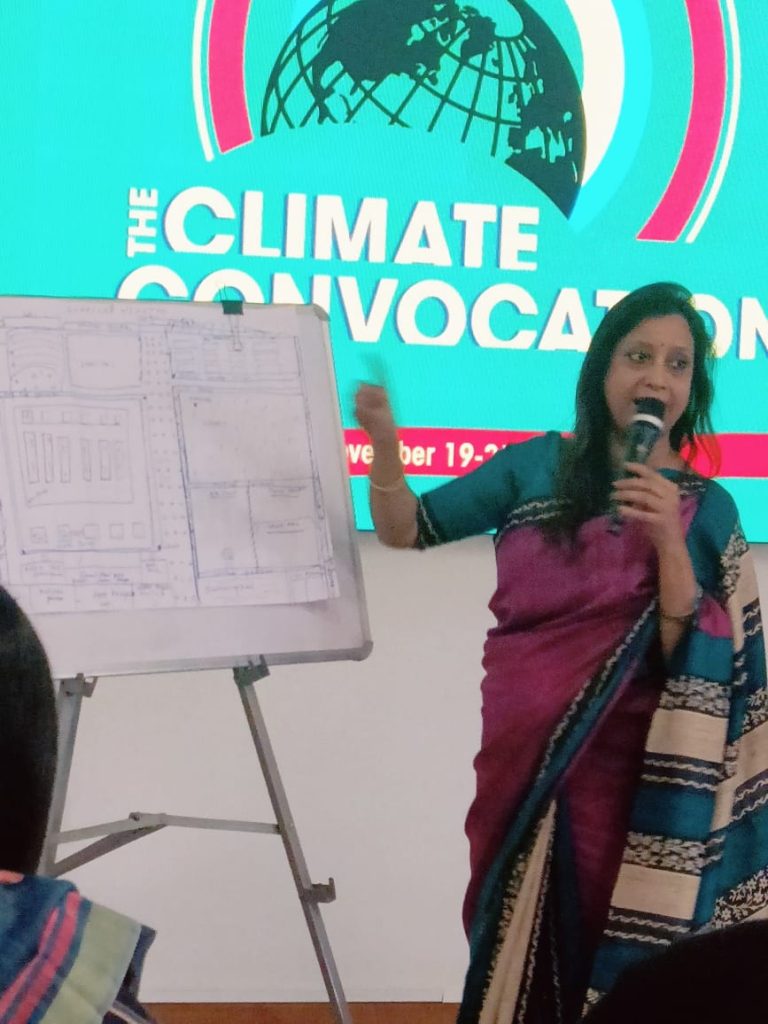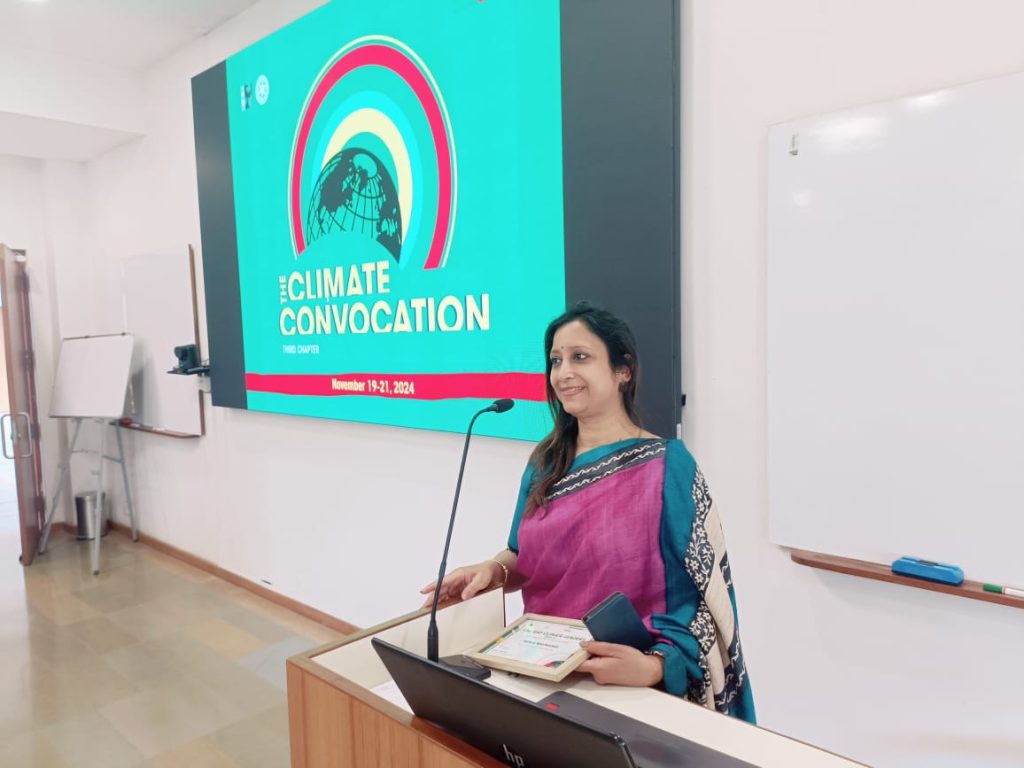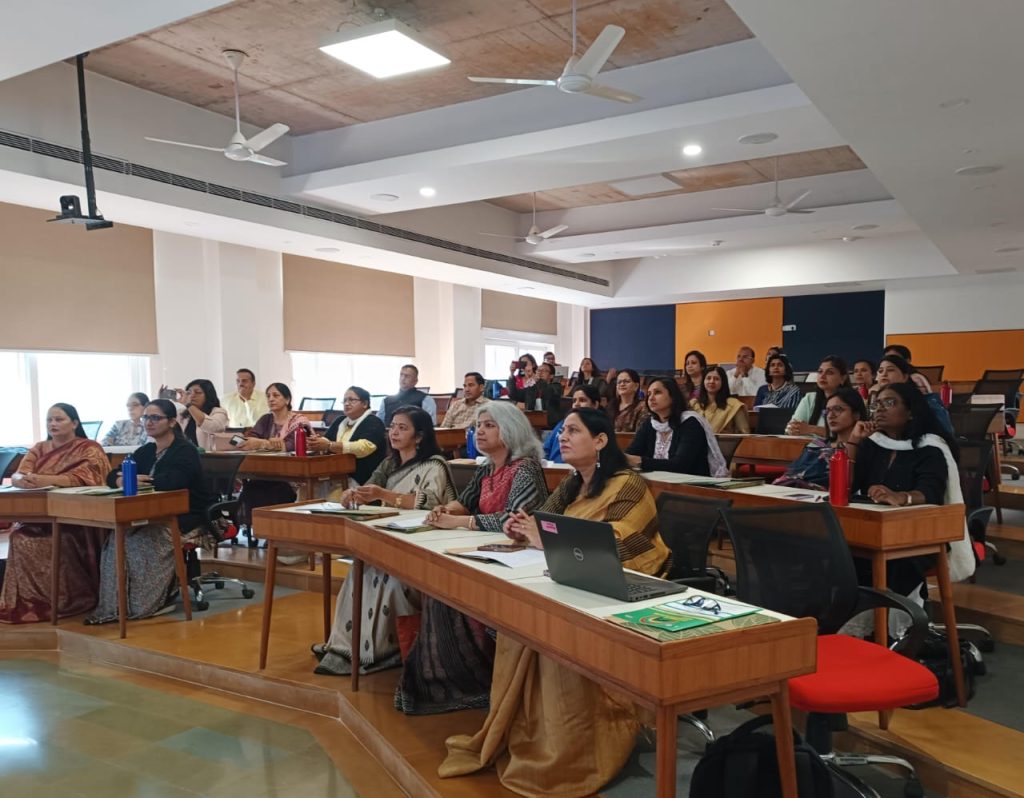CLIMATE CONVOCATIONREPORT
Workshop- Climate Convocation, the third chapter
Place- AAETI Nimli , Rajasthan
Date-19th November -21st November 2024
The day wise details of the session are as follows-
Day-1- 19/11/24
The participants arrived at AAETI campus. An orientation session was carried out followed by distribution of brochure and schedule booklet to participants. A campus tour was organized in the campus AAETI was carried out by Ms Sarabjeet Randhawa, Director, AAETI
Day2-20/11/24
The session started with Ms Tushita Rawat talking over’ YOUTH VOICES ON CLIMATE CHANGE’ which gave an information about the youth perception of climate change and their impact on class room learning. National Survey was on hopes, ideas and views from young people were of the age group (14-25) years. It was found maximum survey percentage from age gp14years.This gave insights to help educators and organizations like CSE to navigate better. Green jobs which are growing exponentially were also discussed.
The second session was taken up by Mr Souparno Banerjee, Sr Director, Environment Education, Publications & Outreach, CSE. He gave an overview on Climate Change unpacked for educators. The insight regarding how the climate change came and became a hue and cry was discussed in the session. It ended with a small exchange of ideas on climate change reaching to class rooms.
The third session on ‘Agenda on the Table@COP29’by Mr Upmanyu Das , Programme Office ,Climate Change, CSE. It highlighted on Finance tug war between developed Nations and Developing Nations. It’s a complicated issue to win the funds from countries like Europe, USA and China.
The Fourth Sessin was taken by Ms Chavi Mathur on How Climate change impacts Agriculture? Climate change is putting a good impact on agriculture both in short term (weather Change) and Long Term (temperature effect).
A farmer From Raichur, Karnataka quotes-
“It’s a repeat of last years Kharif Season when I lost 90% of crop and I could not recover money to sow it again.”
Data was discussed- 61% of farmers primarily depend on rain for agriculture.55% of net sown area is rainfed. Rainfed regions support 44% of food requirement and 60% of livestock needs. Risk and Vulnerability Assessment of Indian Agriculture to Climate Change (2019) was discussed. Impact of Climate Change on Wheat, Kharif, Maiz, groundnut and Irrigated rice was discussed. The data shows emission from fermentation and soil increased. The session stressed for GO ORGANIC, GO NATURAL for a sustainable future. Consumer should get access to organic material and farmers should get proper return to grow organic.
Sustainable agriculture enhances the resilience of both farmers and farming while FPO (Farmer Producer Organization) can be an important vehicle for promoting them. Bolstering safety nuts were also discussed under Crop Insurance. A very important issue HEAT is not considered under Climate disaster for Crops. Rice cultivation produces Nitrous Oxide which needs to be taken care of. An open floor was opened was left for a discussion on DIET effecting positively or negatively influencing climate change.
POST LUNCH SESSION
CLIMATE QUIZ-It was the start of post lunch session. An eye-opening climate quiz was carried out. It gave us an insight of historical background of various climate protocols and treaties.
Next Session was taken up by Mr Sugeet Grover, Programme Manager, Sustainable Habitat on Towards Climate-resilient schools, addressing heat risks in children.2 billion children by 2050 will be experiencing more severe heat wave.
Children will be more vulnerable to extreme heat. They will be having slower cognitive function and impaired concentration. The stages of discomfort were discussed along with factors- External heat gain, Internal heat gain, high student density and Inadequate ventilation.
Day 3-21/11/24
The first session was on the climate -biodiversity nexus. It was understanding the interconnected crisis by Vibha Varshney, Head Biodiversity and Food, CSE. Mushroom biodiversity was discussed. Weather patterns in India have become highly unpredictable and rainfall patterns are changing the vegetation as well as crop growing. The crop that was grown is failing due to erratic weather pattern. Seabuckthorn (Hippophae rhamnoides and H salicifolia) found in higher Himalayas, adaptable to harsh climates has been impacted in productivity. Nandurbar in Maharashtra is one of the most climate change vulnerable districts. Discussion on project on Monitoring of the impact of climate change on biodiversity was talked about.
Next session was taken up by Rajit Sengupta, Associate Editor, Down to Earth on Climate on the edge. The state of extreme weather in India and an assessment of extreme weather events in India and the implications for schools was discussed. How extreme was India in 2024? Was discussed. Climate change and weather change differences were talked about. The impact of Climate change and weather patterns on human life was discussed. The activity of climate change on animals -story of Arikomban and Chakkaomban (rice eating elephants) in Karnataka was talked about. Role play on heat wave can be talked about in classrooms.
GREEN PRINTS OF SCHOOL PRESENTATION was carries out in the group presentation session by participants. It was an eye-opening session with ocean of ideas and practices for schools. Further the culmination of convocation took place by handing over the certificates to the climate Leaders by Dr Souparno Banerjee.

